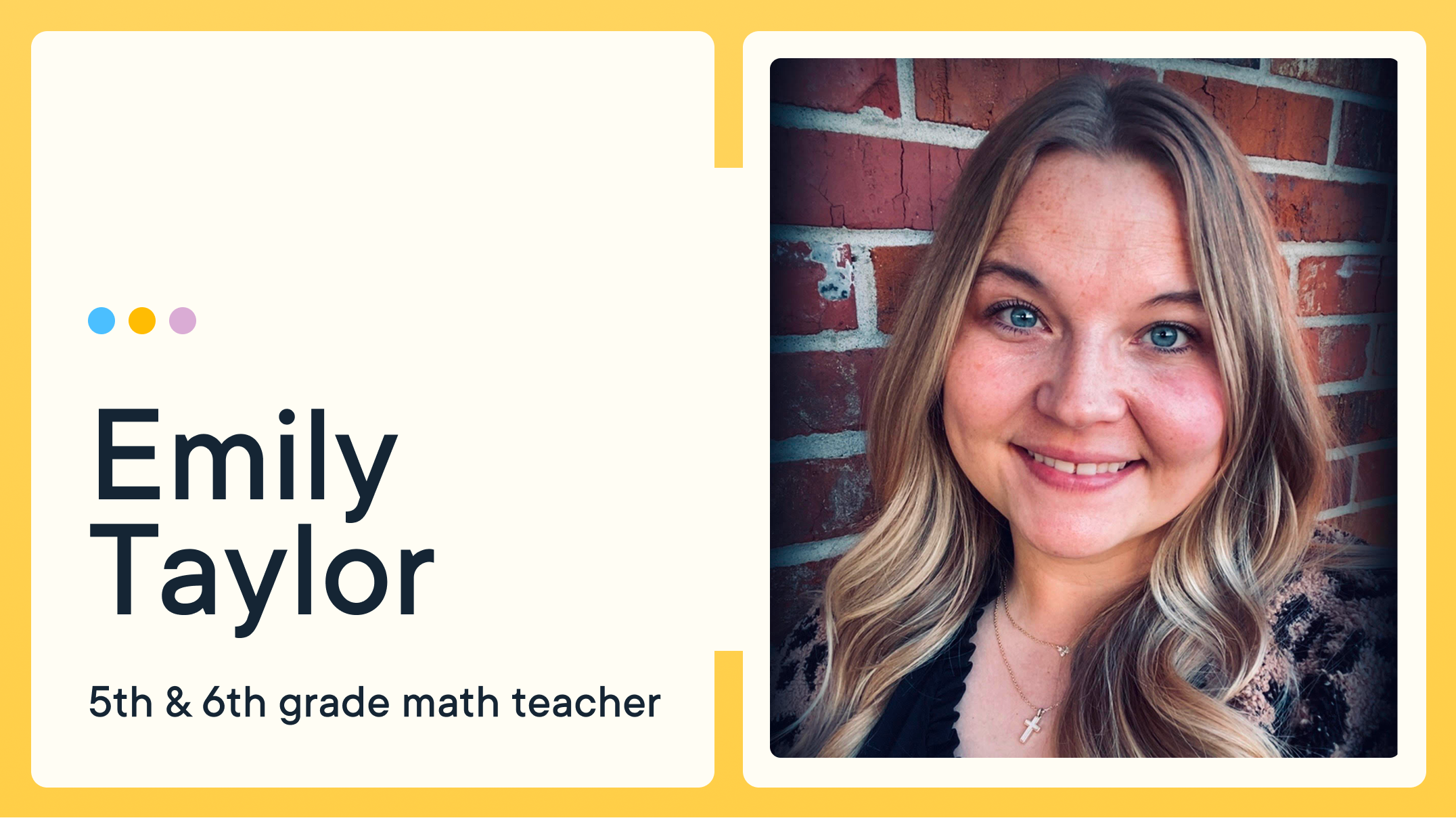What Makes a Great Edtech Tool?

With so many edtech tools available and so little time to learn them, educators are often left overwhelmed and unsure of where to start. That’s why we teamed up with educator and Educational Duct Tape author Jake Miller to learn how to identify “great” edtech tools and how to select which ones to use.
Thanks for taking time to speak with us today, Jake! Let’s start by Learning about your start as a teacher and why it was the path you chose.
JM: “I like to joke that I became a teacher because all I could afford for dinner was ramen noodles. In reality, though, I’ve always enjoyed working with kids. My mom, a teacher, could tell when I was a teenager that I was suited to teaching, but I convinced myself that a higher paying job — in fact, a mechanical engineer — was the best path for me. It only took one year of college to convince me that I needed a job with more purpose and, for me, that was teaching. My role in education has evolved in the 23 years since I made the switch, but I’ll never be in a role that doesn’t support Learning communities.”
That certainly sounds like an inspiring start. When did you start to use technology in the classroom? Did you have an “a-ha” moment that made you fully embrace it?
“I’ve always had an aptitude for technology, but my early uses of edtech were as minimal as the cost of that cheap ramen. My earliest realization of the true power of technology in the classroom came with my role as an 8th grade math teacher. My principal had created a problem that was really stressing me out. I recall the look on my college friends’ faces when I told them about it over drinks one night. My friends, a group of civil and mechanical engineers, didn’t get it. To them, it wasn’t a problem; it was a bonus. My teacher friends? They understood.
So, what was the problem? Eight minutes. Our school schedule was changing, and each of our class periods would be eight minutes shorter than they were the previous year. If the class periods were all eight minutes shorter, that meant my lessons from the previous year would be too long. I needed a solution.
After considering a plethora of illogical solutions — speed talking? non-stop instruction? — I landed on a solution that leveraged edtech as a tool. Each day during my planning period, I recorded a five-minute video of myself going over that day’s homework. The following day, my students would watch that video while I took attendance and carried out all of my other “beginning of class” responsibilities.
My solution leveraged edtech as a tool to solve a problem that I had. This was, without a doubt, an “a-ha” moment for me!”
You were quick to discover that edtech can be an extremely beneficial time-saving tool. In your opinion, what are the components that make a great edtech tool?
“Based off of my realization above, it’s clear to me what makes an edtech tool a great edtech tool: it has to solve a problem or meet a goal that benefits the teacher and/or their students. If it does that, it’s likely to improve the Learning experience one way or another.
Pear Deck, for example, performs a variety of tasks that would be nearly impossible without technology, such as enabling a teacher to assess each student's comprehension simultaneously. Similarly, Edulastic doesn’t just digitize assessments — it saves teachers grading time and gives them timely, actionable data. And with a tool like GoGuardian Teacher, it’s finally realistic for teachers to keep their students on-task, safe, and responsibile in a blended Learning environment.
Finally, in order for an edtech tool to be great, it’s essential it’s combined with good practices. When great edtech tools are combined with great pedagogy, the result will be enhanced outcomes for the learners and instructor.
If we use Pear Deck but never act on the formative assessment it enables, it’s not great. If we use Edulastic, but fail to dig into that data or use that saved time wisely, it fails to be great. If we use GoGuardian Teacher to limit off-task internet browsing, but fail to utilize that power to support our learners at becoming more digitally responsible, it’s not a great tool either. Great educators are what truly make edtech tools great edtech tools.”
In what ways can edtech make you a more effective teacher?
“In my book, Educational Duct Tape, I point out, “It’s not about the technology that we teach with; it’s about how we teach with the technology.” I think that’s an important concept. Educators can choose any edtech tool they want. It could be the Oregon Trail game, the 1995 version of PowerPoint, or a state-of-the-art virtual reality headset. It doesn’t matter unless how we teach with the technology is effective.
I should point out that the Oxford Learner’s Dictionary defines effective as ‘Successful in producing a desired or intended result.’ So, if how we teach with technology is to be effective, we need to know our ‘desired or intended result.’ Therefore, in order for an edtech tool to make us more effective teachers, then we must first identify those ‘desired or intended results’ and the tool must then help us meet them.
An edtech tool can make you a better teacher if it helps you meet your goals. That’s a pretty vague answer, but it’s accurate. If you know your content, your pedagogy, and, most importantly, your learners, then you can set goals, select a tool for meeting those goals, utilize that tool to meet those goals, and, as a result, be a better teacher than you were without the tool.”
What are some of your favorite edtech tools?
“This is like asking me what my favorite food is! Is it breakfast, lunch, or dinner? Am I having a meal or a dessert? Am I at the beach or watching a baseball game? Is it cold or hot outside? Am I at a restaurant or at home? What city am I in?
Just like our food choices depend on our circumstances so, too, do our edtech tool choices. My favorite edtech tools are just that: my favorite edtech tools. And, just like you might prefer a medium rare steak rather than a burrito, you may have different favorite edtech tools. Why? Because they’re your favorite edtech tools, not mine.”
Excellent points! Let’s talk a bit about your book “Educational Duct Tape.” What’s it about, and why did you decide to write it?
“In the book, I share fun stories and inspirational quotes while showing the reader how the ‘educational duct tape mindset’ can help educators select edtech tools to use in their Learning environments. I wrote it because the educational landscape is jam-packed with edtech options, which leads to educators falling into the trap of the ‘paradox of choice.’
This paradox often keeps educators from integrating any of the available options because they’re paralyzed by the options, rather than liberated by them. So, I wanted to help them overcome this paralysis and select tech tools that can help them increase their effectiveness without increasing their stress or workload.”
That’s a really relatable scenario, it sounds like a great read. How do you keep up with the latest in edtech?
“Twitter and email newsletters! Others might prefer other means — Instagram, podcasts, Facebook, etc. — but these are what work for me.
It’s a lot to keep up with, though, which is why I recently started The EdTech News Brief podcast and YouTube series. My goal there is, as the title says, to inform educators and keep it brief. And by brief, I mean clear, concise, and only what educators need to know. Nothing more, nothing less.”
What advice would you give to other teachers in regards to technology in the classroom?
“You can’t — and shouldn’t — use all of the edtech tools out there, or, worse yet, learn about all of them. So how do you choose which ones to use? Ask yourself what your goals, needs, and problems are for your Learning environment or for a given lesson. Then, identify the tools that meet a goal, address a need, or solve a problem for you. Those are the only ones you need to consider. Once you identify that subset of tools, which one do you want to start with? Which one will benefit you and your learners the most right now? Take it one at a time.”
Thank you for your time! Is there anything else you’d like to share with us?
“Educators are awesome. That’s all. You don’t hear it as much as you should. Look at you, reading a blog post about edtech all of the way to the end. And I bet no one forced you to, either. So why did you read it? Because you’re awesome. Thanks for what you do for your learners!”
We couldn’t agree more, Jake. Thank you for sharing your insight and expertise with us!
Jump to Section
Bring the power of GoGuardian to your school or district today.



